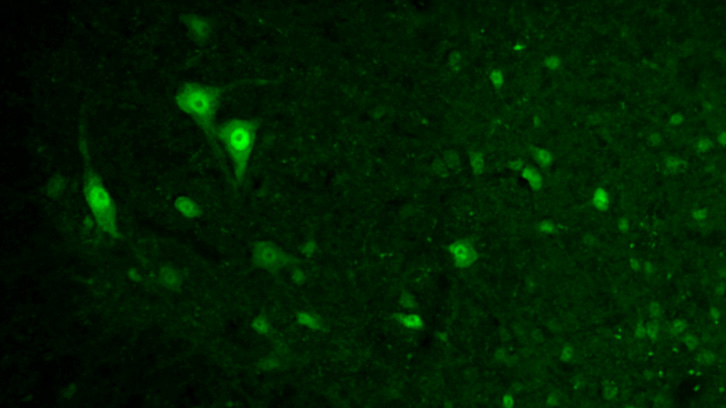New therapeutic target for the treatment of spinal cord injuries

Spinal cord injuries produce a chronic disability for patients and their families. Each year there are between 250,000- 500,000 new patients with this type of injury. The main consequences of the injury are paralysis, loss of sensitivity and dysfunction of many organs, leading to serious complications in both acute and chronic stages. At present there are no treatments that produce a significant improvement in the function and quality of life of these patients and, therefore, research in this field is essential to find appropriate therapies. The Neuroplasticity and Regeneration Group of the UAB lead by Dr. Xavier Navarro is studying several therapeutic strategies to improve functional recovery after traumatisms of the nervous system.
Recently, the researchers Judith Sánchez and Dr. Clara Penas, from the Neuroplasticity and Regeneration Group, have found a pharmacological therapy that could be transferred from pre-clinical studies to the clinic. This therapy is based on modulating epigenetic mechanisms that regulate neuroinflammation. Epigenetics consists in the study of changes in chromatin, not associated with changes in the DNA sequence, which produce alterations in gene activity. During the last decades, it has been discovered that these changes occur constantly throughout the life of an organism and modulate various biological, pathological and behavioral processes. So far, epigenetic studies have focused mainly on cancer and psychiatric illnesses. The UAB research group has discovered that in stressful situations, such as traumatisms of the nervous system, certain epigenetic changes also occur. After spinal cord injury, beguins a cascade of inflammatory processes that increase the volume of injured tissue and, therefore, produce an increase in functional deficits. In addition, these inflammatory processes remain chronically after the injury and inhibit functional recovery. In this study it has been discovered that a pharmacological therapy that inhibits epigenetic catalysts, called BET proteins, reduces the production of pro-inflammatory factors after a spinal cord injury in mice. This treatment produces protection in the injured tissue and improves the ability of the mice to walk after the injury.
Knowing exactly the mechanisms of action of BET proteins after spinal cord injury can promote the development of specific compounds for the treatment of patients in the near future. Currently, this project is being submitted to several funding calls to promote its continuation and be able to reach clinical studies in the near future. Research in this field can open a new window for therapeutic innovation, which could reduce morbidity in patients with spinal cord injury.
Universitat Autònoma de Barcelona
References
Judith Sánchez-Ventura , Jesús Amo-Aparicio, Xavier Navarro, Clara Penas. (2019). BET protein inhibition regulates cytokine production and promotes neuroprotection after spinal cord injury. J Neuroinflammation, 11;16(1):124. DOI: 10.1186/s12974-019-1511-7.

